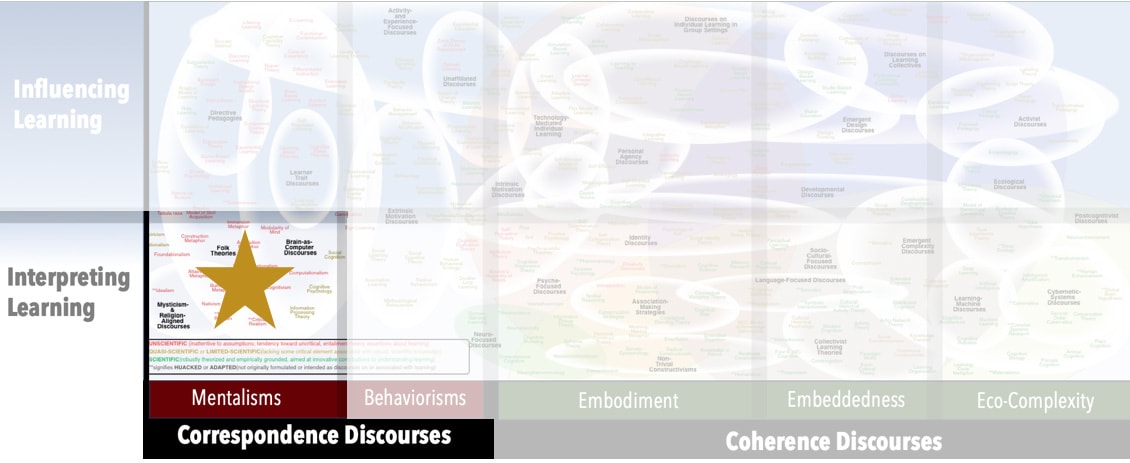Focus
Mental processesPrincipal Metaphors
- Knowledge is … scope of possible actions and interpretations
- Knowing is … cognizing
- Learner is … an information processor (individual)
- Learning is … inputting information
- Teaching is … formatting information
Originated
1970sSynopsis
Cognitive Psychology is a domain of research that’s focused on learning, perception, attention, memory, creativity, problem-solving, and other mental processes. It is a major tributary to Cognitive Science, although not as interdisciplinary and not as broad. Associated discourses include:- Inspiration – in Cognitive Psychology, an Aha! Moment (see Unaffiliated Discourses)
- Psychophysics (Psychophysical Law; Psychophysical Relationship) (Gustav Fechner, 1860s) – an approach to studying human perception that is focused on the effects of systematically varying the properties of a stimulus along one physical dimension (e.g., intensity, size, location, etc.) at a time
Commentary
There is a pronounced tendency within Cognitive Psychology to interpret learning in terms of the metaphors associated with Cognitivism. That is, “cognition” is often interpreted as information processing – and while the associated cluster of metaphors is useful on some levels, it is also profoundly reductive and limiting, given that the brain is not a computer. One of the upshots is that, compared to Cognitive Science, Cognitive Psychology is relatively uninfluential in education.Authors and/or Prominent Influences
DiffuseStatus as a Theory of Learning
Cognitive Psychology actually comprises several theories of learning. It is perhaps better understood in terms of the study of cognition.Status as a Theory of Teaching
Cognitive Science is not a theory of teaching. Apart from its influences through Cognitive Science, it has not been especially influential in education.Status as a Scientific Theory
Cognitive Psychology is rigorously scientific on the level of inquiry. However, as a domain, it is not especially attentive to its grounding metaphors.Subdiscourses:
- Inspiration
- Psychophysics (Psychophysical Law; Psychophysical Relationship)
Map Location

Please cite this article as:
Davis, B., & Francis, K. (2023). “Cognitive Psychology” in Discourses on Learning in Education. https://learningdiscourses.com.
⇦ Back to Map
⇦ Back to List
